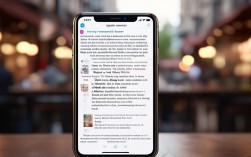在雅思口语考试中,"possessions"是一个高频话题,它不仅涉及个人物品的描述,更延伸至价值观、生活方式和文化意义的探讨,如何围绕这一关键词展开有深度、有逻辑的论述,是考生需要掌握的核心技能,本文将从 possessions 的分类、情感价值、文化差异、雅思口语应用技巧及常见误区五个维度,系统解析这一话题,并提供实用备考建议。

possessions 的分类与功能
Possessions(个人物品)可根据用途、价值属性分为多个类别,不同类别的物品在口语描述中各有侧重,从功能角度,可分为生存必需品(如手机、衣物)、兴趣爱好相关(如相机、乐器)、情感寄托物(如礼物、纪念品)和身份象征物(如奢侈品、收藏品),在回答 "Describe a possession you value" 时,若选择生存必需品(如手机),可侧重其多功能性对生活的便利;若选择情感寄托物(如祖母留下的怀表),则需突出背后的故事与情感联结。
从雅思口语评分标准看,考官更关注考生能否对物品进行细节化分类并阐述其功能,将 "possessions" 细分为 "daily necessities" 和 "sentimental items",再分别举例说明,能体现逻辑思维的清晰度,以下表格展示了常见分类及描述角度:
| 分类 | 示例物品 | 描述重点 | 雅思口语应用场景 |
|---|---|---|---|
| 生存必需品 | 手机、笔记本电脑 | 功能、使用频率、对生活的影响 | Part 1 "What is your favorite electronic device?" |
| 兴趣爱好相关 | 吉他、绘画工具 | 如何获得、使用频率、带来的乐趣 | Part 2 "Describe a hobby you enjoy" |
| 情感寄托物 | 相册、手工制品 | 赠送者、故事、情感价值 | Part 2 "Describe a gift you received" |
| 身份象征物 | 名表、限量版球鞋 | 获得方式、社会意义、个人态度 | Part 3 "Do you think possessions reflect a person's status?" |
possessions 的情感价值与心理意义
Possessions 的核心价值往往超越物质本身,承载着个人记忆、情感认同或自我表达,心理学中的"延伸自我理论"(Extended Self Theory)指出,人们会将物品视为自我的一部分,其丢失或损坏会引发类似"自我受损"的情感反应,在雅思口语中,挖掘物品的情感价值是获取高分的关键。
描述一件童年玩具时,不应仅停留在外观描述,而应关联具体经历:"This teddy bear was given by my father when I was five. I still remember hugging it every night when I was scared of the dark. Now it's a bit worn out, but the scratches on its paw tell stories of my childhood." 这样的回答通过细节("scratches on its paw")和情感联结("scared of the dark"),展现了语言表达与情感深度的结合。
值得注意的是,情感价值的描述需避免泛泛而谈,与其说 "I love this book because it's meaningful",不如具体说明:"This novel was my escape during college entrance exams. I used to read a chapter before bed, and the protagonist's courage inspired me to keep going." 通过具体场景("college entrance exams")和因果关系("inspired me to keep going"),使论述更具说服力。
possessions 的文化差异与观念变迁
不同文化背景下,人们对 possessions 的态度存在显著差异,这一角度可为雅思口语 Part 3 的讨论提供深度,在西方文化中,"minimalism"(极简主义)近年来成为潮流,许多人倾向于减少物品数量,强调"拥有更少,但更好";而在东亚文化圈,"收藏"(如邮票、古董)和"传家宝"(如珠宝、家具)则更受重视,物品往往承载着家族记忆与社会传承。
以"gift-giving"(送礼)为例,在中国文化中,礼物注重"实用价值"(如保健品、茶叶)和"象征意义"(如红色包装寓意吉祥);而在西方文化中,更强调"个性化"(如根据对方兴趣定制的手工艺品)和"体验性"(如演唱会门票、旅行券),在回答 "Do people in your country like to receive expensive gifts?" 时,结合文化差异分析:"In China, expensive gifts like designer bags are often seen as a sign of respect, especially for elders. But young generations now prefer meaningful gifts, like a photo album of shared memories, because they value emotional connections over material value." 这样的回答既体现了文化洞察力,又展现了辩证思维。
随着科技发展,possessions 的形态也在发生变化,实体书逐渐被电子书取代,CD 被 Spotify 等流媒体平台取代,这种变迁反映了人们对"占有"与"使用"的观念转变——从"拥有物品"转向"享受服务",在口语讨论中提及这一趋势,能体现考生对社会议题的关注度。
雅思口语中 possessions 话题的应用技巧
针对雅思口语不同部分,possessions 话题的答题策略需灵活调整:
Part 1:简短清晰,突出个人化
Part 1 问题(如 "Do you like shopping?" "What kind of bag do you use?")要求快速、自然地回应,回答时需避免简单 "Yes/No",而是加入个人细节。
Q: "Do you like shopping?"
A: "I enjoy shopping for daily necessities like notebooks and skincare products, but I hate crowded malls. Last week, I bought a backpack online because it has a separate pocket for my laptop, which is really convenient for my work."
通过具体物品("backpack")、功能需求("separate pocket for laptop")和个人偏好("hate crowded malls"),展现语言的真实性与丰富性。
Part 2:故事化叙述,构建逻辑框架
Part 2 的 "Describe..." 题目(如 "Describe something you own that you value highly")需采用"引入-描述-故事-感受"的结构。
- 引入:"I'd like to talk about my grandfather's old watch, which he passed down to me last year."
- 描述:"It's a mechanical watch with a silver strap and a faded leather band. The dial has Roman numerals, and the second hand ticks loudly, which I find comforting."
- 故事:"My grandfather was a watchmaker, and he used to fix this watch on his desk every Sunday. He told me it stopped working the day my grandmother passed away, but he never fixed it because he wanted to keep her memory alive."
- 感受:"Now, I wear it every day. It's not just a watch; it reminds me of his love and the importance of cherishing time."
通过故事化的叙述,将物品与个人经历深度绑定,既能展示词汇量("mechanical watch", "Roman numerals"),又能体现情感表达能力。
Part 3:辩证分析,拓展社会视角
Part 3 问题(如 "Why do some people attach great importance to their possessions?" "Do you think technology has changed the way people view possessions?")要求从个人视角转向社会议题,需展现辩证思维。
Q: "Why do some people attach great importance to their possessions?"
A: "There are several reasons. For some, possessions represent security, like a house or savings, which provide stability in an uncertain world. For others, they are a way to express identity—like a musician valuing their guitar or a collector valuing rare stamps. However,过度重视 possessions may lead to materialism, where people measure their self-worth by what they own rather than who they are."
通过"原因分析+举例+利弊探讨"的结构,展现思维的全面性与深度。
possessions 话题的常见误区与规避方法
在备考过程中,考生围绕 possessions 话题常陷入以下误区,需特别注意:
词汇单一,重复使用 "like" 或 "important"
部分考生在描述物品时,频繁使用 "I like this watch because it's important",缺乏词汇多样性,解决方案是积累同义替换与细节描述词:
- "valuable" → "cherished", "priceless", "irreplaceable"
- "old" → "vintage", "well-worn", "antique"
- "beautiful" → "exquisitely designed", "intricately crafted", "aesthetically pleasing"
将 "This is an old book" 升级为 "This is a well-worn novel with a faded cover, whose yellowed pages tell stories of countless rereads."
忽视文化背景,论述缺乏深度
在 Part 3 讨论中,若仅停留在个人观点(如 "I think possessions are not important"),而未结合社会文化背景,会显得论述单薄,建议考生关注跨文化对比与社会趋势,如提及"共享经济"("young people now prefer using shared bikes instead of owning one")或"可持续发展"("more people choose eco-friendly products to reduce waste")。
情感虚假,缺乏真实细节
考官能轻易识别背诵的模板化回答(如 "This gift is very meaningful because it represents love"),真实的情感表达需依托具体细节,如物品的外观、使用场景或相关人物的故事,描述母亲织的围巾时,可提及"the small imperfections in the knitting, which make it unique"或"the smell of wool that reminds me of her cooking"。
FAQs
Q1: 在雅思口语 Part 2 中描述 possessions 时,是否需要提及物品的价格?
A1: 不需要刻意提及价格,除非价格与物品的价值直接相关(如传家宝、限量版收藏品),雅思口语更关注语言表达与情感深度,而非物质价值,若提及价格,需注意语气自然,避免炫耀(如 "It was very expensive, but I bought it anyway" 可改为 "It was a bit pricey, but I thought it was worth it for its quality")。
Q2: 如何避免在描述 possessions 时显得物质主义?
A2: 可通过强调物品的情感价值、功能性或象征意义,而非价格或品牌,描述手机时,与其说 "I have the latest iPhone, which is expensive",不如说 "My phone helps me stay connected with my family abroad through video calls, and its camera allows me to capture beautiful moments during my travels". 可加入对"过度消费"的反思,如 "I try to buy things that I really need, rather than following trends, because I believe true happiness comes from experiences, not possessions"。











